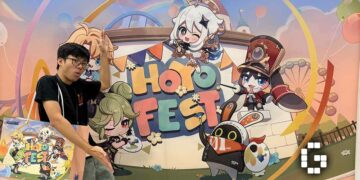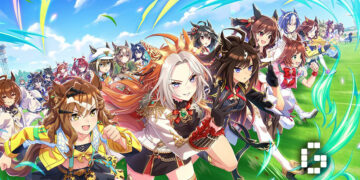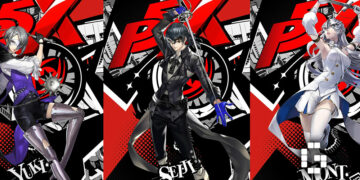Virtua Fighter 5 Ultimate Showdown Chief Producer Seiji Aoki says future Virtua Fighter games would need to have rollback, as the game goes on sale.

We caught up with Seiji to talk all things Virtua Fighter- from its appearance at EVO Japan to Seiji’s own effort keeping Virtua Fighter alive in the Like A Dragon series prior to the release of Ultimate Showdown.
The Legacy of Virtua Fighter

No matter which way you try to spin it, it’s hard to ignore the importance of Virtua Fighter in fighting games. It predates 3D fighters like Tekken and Soul Calibur, holding many a special spot in the hearts of the genre’s lovers.
With the return of Virtua Fighter via Ultimate Showdown, there’s been plenty of love shown for the series. Ultimate Showdown was a main event at EVO Japan, and we even asked Seiji about how if he’d been showing up to any tournaments to compete.
There was a lot of excitement during the very first teaser for Virtua Fighter Ultimate Showdown. Could you share what it was like seeing those reactions to Virtua Fighter coming back?
Seiji: Virtua Fighter is one of SEGA’s representative titles, and it has been a long wait since the last game, being able to see the surprise and excitement of the fans was a moving experience for all of us on the development team. Development had already started at the time of this announcement, but there were a lot of uncertainties and worries, such as the impact of the pandemic. Not wanting to let down the fans, we unified as a team and managed to release the game in time for SEGA’s 60th anniversary. I still vividly remember the sense of accomplishment I felt when we were able to achieve this.

It’s been two years now since the release of Virtua Fighter 5 Ultimate Showdown, is there anything you’ve learned in this time period?
Seiji: The release of our latest title made me realize, once again, that the series is popular worldwide and has many fans. Because the game was a remake, esports elements were added to match the modern gaming landscape, and the graphics were completely rebuilt from scratch. As a result, it received a lot of love from fans, but our development team still encountered some issues and learning opportunities.

How did you feel seeing Virtua Fighter on the main stage at EVO Japan this year?
Seiji: There were a ton of participants, and I think it was the most exciting in-person tournament I’ve seen in recent years. I enjoyed that electrifying atmosphere that you can only experience at these types of events and interacting with the fans was a lot of fun. I hope I can attend EVO in Las Vegas in the future.
Do you personally get involved with local Virtua Fighter tournaments?
Seiji: I’m not that great at Virtua Fighter, so if I participated in a tournament, I’d probably be eliminated fairly quick (laughs). But I think there are a lot of casual players, so it’d probably be good to prepare a system or environment where they can play the game without having to worry about skill.
In a lot of circles Virtua Fighter holds this reputation for being incredibly high-execution even among 3D fighters, how does it feel to hold that?
Seiji: When Virtua Fighter was released in 1993, it was the first 3D fighting game to hit the market. It became a massive hit and a landmark title in the 3D fighting genre. Since then, there have been many other titles that have emerged in the genre, but in terms of the 1-on-1 subgenre, the fact that the original game’s mechanics can still be considered refined and top-notch today, 30 years after its release, is something we take a lot of pride in.
Despite Ultimate Showdown having incredibly polished visuals, a lot of fans (including myself) really love the more lo-fi audio for all the character’s voicelines. Is that an aesthetic the game is committed to maintaining?
Seiji: Since Virtua Fighter 5 Ultimate Showdown was a remake based on Virtua Fighter 5 Final Showdown, we decided that it would be best to keep the voices and atmosphere of the original game. However, because it was released such a long time ago, many of the voice actors who worked on it have either retired or cannot be reached. So, if there is another game, we will probably have to re-record all the voiced lines.

Even though there hasn’t been a new Virtua Fighter game for many years before Ultimate Showdown, many fans enjoyed it via the Like a Dragon series’ arcade minigames. Were you aware that people were playing the game this way?
Seiji: Yes, because I supervised the implementation of Virtua Fighter as a mini-game in the Yakuza/Like a Dragon series. I think it’s one of the more popular mini-games in the series, and I hope people will continue to enjoy playing it in future titles as well.
Since the release of Ultimate Showdown, are there any other fighting styles/cultures that have caught your eye that you might want to add to future titles?
Seiji: Nowadays, global expansion is a must for console games. Due to that, I think understanding different cultures and customs from around the world is crucial when designing a game. When new fighting styles are added in the future, I’d like to keep that in mind and conduct thorough research and examination.
Capturing Beginners

We’d also covered a lot of ground on how the Virtua Fighter series would need to adapt to modern fighting games, particularly when it comes to beginners. The FGC has grown considerably since the previous Virtua Fighter release, which means there’s that many more players to introduce to such a cornerstone of fighting game culture.
Admittedly, many more fighting games have sprung up since the last mainline Virtua Fighter title. As a big esports game, what can you guys do about winning over new and returning players to invest in your game?
Seiji: While it’s important to create content for fighting game fans, I think it’s important to also create content that viewers or newcomers to the fighting genre can enjoy. For example, I can’t play soccer, but I love watching soccer. I’d like to create content that will interest those watching the game and make them fans.
One comment many players outside of Japan had about Ultimate Showdown was about the game’s netcode. Considering how almost every major title has either announced a new entry with rollback or is getting a new entry with it, did you ever consider doing the same for Virtua Fighter?
Seiji: Since online matches are a core component of fighting games nowadays, netcode support has become absolutely essential. As you know, Virtua Fighter 5 Ultimate Showdown is a remake based on Virtual Fighter 5 Final Showdown. When Final Showdown was released on the Xbox 360 and PS3, the concept of rollback was still not very well known, so I developed and implemented my own mechanism to reduce delays. The netcode in the latest title is similar in nature. However, I believe that implementing rollback will be absolutely necessary when developing future titles.

Considering how most modern fighting games have started to adopt this shift to more aggressive universal mechanics, do you think that’s something we might see in a future Virtua Fighter title too?
Seiji: I feel like fighting games are becoming too complicated these days. I have some doubts about this trend of creating an over-complicated system and then trying to patch that up later with ease-of-entry mechanics. Regarding that aspect, I think the battle mechanics in Virtua Fighter are really simple and easy to understand. This is a design philosophy I’d like to maintain in future titles in the series.
The good thing about Virtua Fighter’s control scheme is that even if you’re not playing optimally, it’s very easy to pick up and have fun since there are so few buttons. Was that always intentional?
Seiji: One defining aspects of Virtua Fighter is letting players directly move their characters in deft ways via simple controls. I’ve heard that the original Virtua Fighter was developed as a simulation game, so there was an emphasis placed on simple controls and realistic movements. I would like to preserve this design philosophy in the future.

There’s a lot to love with Virtua Fighter, even moreso with Virtua Fighter 5 Ultimate Showdown. The game series is a high-execution blitz, requiring quite a lot of understanding of the whole roster to get a hold of all while having fairly simple button inputs. The game’s on sale now if you want to pick it up for yourself, and our thanks to SEGA as well as Seiji Aoki for answering our questions about this iconic series.





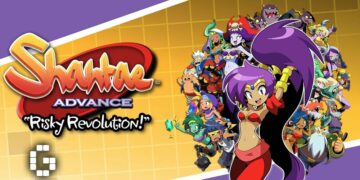



![[EXCLUSIVE] Creative Masterminds from Gearbox Software Reveal What Makes Borderlands 4 Worth the Wait](https://cdn.gamerbraves.com/2025/07/Borderlands-4-at-Bilibili-World-2025_Interview_FI-360x180.jpg)


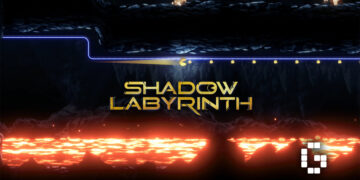

![[ASIA EXCLUSIVE] Bringing Back a Classic: Inside the Making of FINAL FANTASY TACTICS – The Ivalice Chronicles](https://cdn.gamerbraves.com/2025/06/FFT-Ivalice-Chronicles_Interview_FI2-360x180.jpg)








